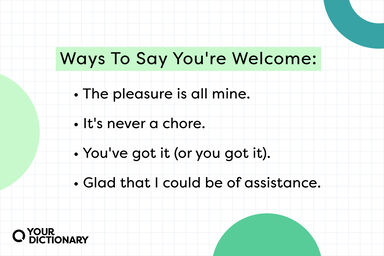Say Definition
(informal) Used to introduce a hypothetical.
- Used preceding an utterance to call attention to it:
I say, do you have the time?
- Used as an exclamation of surprise, delight, or dismay.
- In other words.
- And there is no need to mention. Used to allude to things that fill out an idea or argument:
The yard is a mess, to say nothing of the house.
- Used to express strong agreement with what has just been said.
- to be too obvious to need explanation; be self-evident
Idioms, Phrasal Verbs Related to Say
Origin of Say
-
From Middle English seyen, seien, seggen, &c., from Old English secÄ¡an (“to say, speak"), from Proto-Germanic *sagjanÄ… (“to say"), from Proto-Indo-European *sekÊ·-, *sekÊ·e-, *skÊ·Ä“- (“to tell, talk"). Cognate with West Frisian sizze (“to say"), Dutch zeggen (“to say"), German sagen (“to say"), Swedish säga (“to say").
From Wiktionary
Grammaticalization of the verb. In the case of the conjunction, it could be considered an elision of "Let's say that" and for the "for example" sense of "Let's say"
From Wiktionary
-
Middle English seien from Old English secgan sekw-3 in Indo-European roots
From American Heritage Dictionary of the English Language, 5th Edition
-
From Middle French saie, from Latin saga, plural of sagum (“military cloak").
From Wiktionary
-
Aphetic form of assay.
From Wiktionary
Find Similar Words
Find similar words to say using the buttons below.





